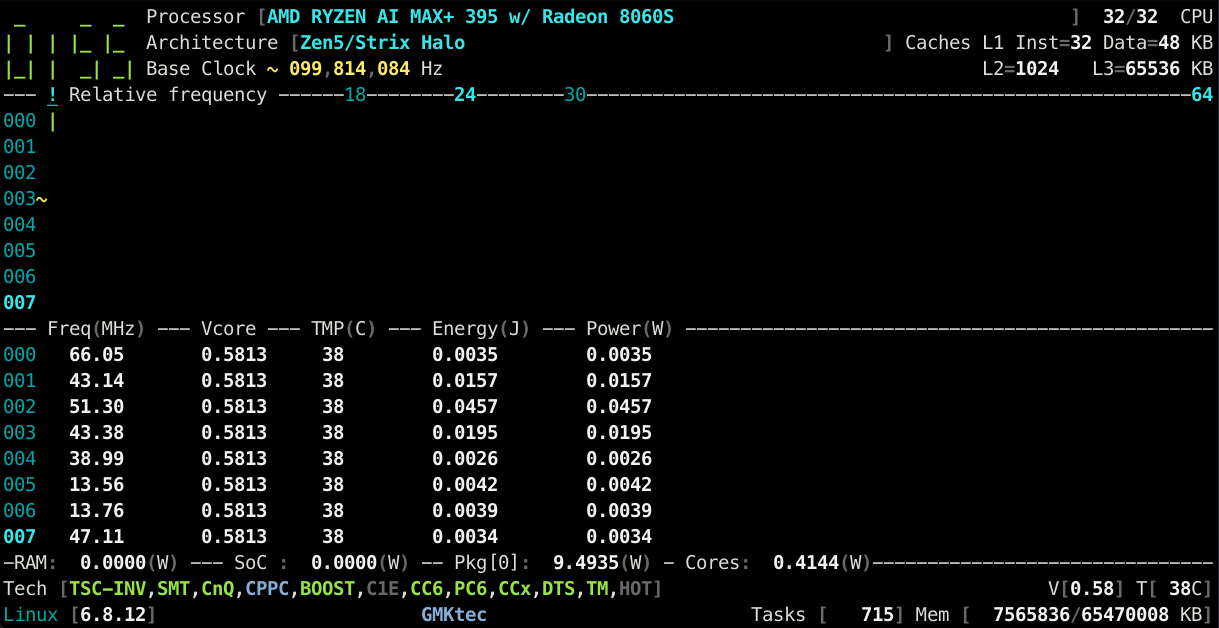Blame
| 227ece | deseven | 2025-06-12 12:48:23 | 1 | # Hardware Monitoring |
| 2 | ||||
| 3 | ### Problem |
|||
| 4 | When running Linux, especially older 6.x kernels, you might find that there are no thermal/power sensors available. |
|||
| 5 | ||||
| 6 | ### Solution |
|||
| e2ea4d | deseven | 2025-06-18 10:36:33 | 7 | I tried several different options, but the only thing that worked was [CoreFreq](https://github.com/cyring/CoreFreq). It has its own kernel module, daemon and console client. The installation is pretty straightforward, just follow the official installation guide (note that there is [a separate instruction for Proxmox](https://github.com/cyring/CoreFreq?tab=readme-ov-file#proxmox)). Don't forget to enable the daemon afterwards with `systemctl enable corefreqd`. |
| 0d4dee | deseven | 2025-06-12 13:03:29 | 8 | |
| 9 |  |
|||
| ae0fd7 | deseven | 2025-06-12 14:52:53 | 10 | |
| 11 | If you need to access some individual values to be used elsewhere, `corefreq-cli` supports JSON output. For example, here's how you can get current CPU temprature and power limit: |
|||
| 12 | ```bash |
|||
| 77d0b8 | deseven | 2025-06-12 14:53:38 | 13 | corefreq-cli -j | jq -c "{cputemp: ([.Cpu[].FlipFlop[].Thermal.Temp] | add/length | round ), cpupower: (.Proc.State.Power[0] | round)}" |
| ae0fd7 | deseven | 2025-06-12 14:52:53 | 14 | ``` |
| 792e43 | deseven | 2025-07-08 21:14:12 | 15 | |
| 16 | ### Relevant Pages |
|||
| dabcb3 | deseven | 2025-07-10 15:08:34 | 17 | - [[Guides/Power-Mode-and-Fan-Control]] |